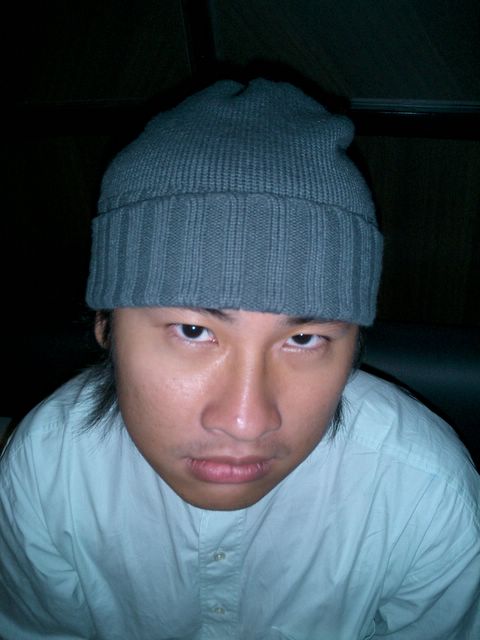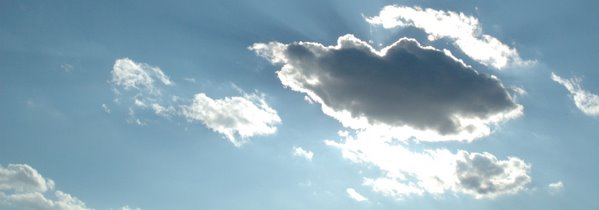This is an article I found on the web. It is regarding the slow but steady rise of non-believers in the USA. Hopefully in Singapore, we will never have to endure the religious right running the show in our country.
=========================================================================
Atheists on the rise
Those who don't believe in God are finding strength in numbers in public and political arenas
By JACQUELINE L. SALMON and MARY JORDAN
The Washington Post
In England and its offspring, the United States, a legion of the godless is rising up against the forces of religiosity.
“People who were ashamed to say there is no God now say, ‘Wow, there are others out there who think like me, and it feels damned good,’ ” said Margaret Downey, president of the Atheist Alliance International, whose membership has almost doubled in the last year to 5,200. It had a 500-person waiting list for its convention in Arlington, Va., last month.
Books like The God Delusion, by Oxford University professor Richard Dawkins, attempting to debunk religion have been surprise best-sellers the last two years, outselling such religious works as Pope Benedict XVI’s book on Jesus and popular Christian novelist Tim LaHaye’s latest book, Kingdom Come, according to Nielsen BookScan.
And atheists themselves are becoming much more vocal. Take columnist and author Christopher Hitchens. Recently he said a new book laying out Mother Teresa’s secret struggles with her doubts about God showed her spiritual wavering was actually atheism.
“She couldn’t bring herself to believe in God, but she wished she could,” said Hitchens, whose God Is Not Great: How Religion Poisons Everything is among atheist best-sellers.
Representatives of atheist and humanist groups say the books probably haven’t converted many religious people. But, said Lori Lipman Brown, a lobbyist for the Secular Coalition for America, which represents eight atheist or humanist organizations, the books “tremendously increase the visibility of nontheist rights.”
“Nontheist” is another term for atheist, or someone who does not believe in a supreme being.
New groups of nonbelievers are sprouting on college campuses, anti-religious blogs are expanding across the Internet, and, in general, more people are publicly saying they have no religious faith.
More than three out of four people in the world consider themselves religious, and those with no faith are a distinct minority. But especially in richer nations, and nowhere more than in Europe, growing numbers of people are saying they don’t believe there is a heaven or a hell or anything other than this life.
A study released in June by the Barna Group, a religious polling firm, found that about 5 million adults in the United States call themselves atheists. The number rises to about 20 million — about one in every 11 Americans — if people who say they have no religious faith or are agnostic (they doubt the existence of a God or a supreme deity) are included.
They tend to have more education and be more affluent and more likely to be male and unmarried than those with active faith, according to the Barna study. Only 6 percent of people older than 60 have no faith in God, and one in four adults 18 to 22 describe themselves as having no faith.
Many analysts trace the rise of what some are calling the “nonreligious movement” to the Sept. 11, 2001, terrorist attacks. The sight of religious fanatics killing 3,000 people caused many to begin questioning — and rejecting — all religion.
“This is overwhelmingly the topic of the moment,” said Terry Sanderson, president of the National Secular Society of Britain. “Religion in this country was very quiet until Sept. 11, and now it is at the center of everything.”
Since the 2001 attacks a string of religiously inspired bomb and murder plots has shaken Europe. Muslim radicals killed 52 people on the London transport system in 2005 and 191 on Madrid, Spain, trains in 2004.
People apparently aiming for a reward in heaven were arrested in Britain last year for trying to blow up trans-Atlantic jetliners. And earlier this month in Germany, authorities arrested converts to Islam on charges that they planned to blow up American facilities there.
Many Europeans are angry at demands to use taxpayer money to accommodate Islam, Europe’s fastest-growing religion, which now has as many as 20 million followers on the continent. Along with calls for prayer rooms in police stations, foot baths in public places and funding for Islamic schools and mosques, expensive legal battles have broken out over the niqab, the Muslim veil that covers all but the eyes, which some devout women seek to wear in classrooms and court.
Christian fundamentalist groups who want to halt certain science research, reverse abortion and gay rights and teach creationism rather than evolution in schools are also angering people, according to Sanderson and others.
“There is a feeling that religion is being forced on an unwilling public, and now people are beginning to speak out against what they see as rising Islamic and Christian militancy,” Sanderson said.
Though the number of nonbelievers speaking their minds is rising, academics say it’s impossible to calculate how many people silently share that view. Many people who do not consider themselves religious or belong to any faith group often believe, even if vaguely, in a supreme being or an afterlife. Others are not sure what they believe.
The term “atheist” can imply aggressiveness in disbelief; many who don’t believe in God prefer to call themselves humanists, secularists, freethinkers, rationalists or, a more recently coined term, brights.
“Where religion is weak, people don’t feel a need to organize against it,” said Phil Zuckerman, an American academic who has written extensively about atheism around the globe.
He and others said secular groups are also gaining strength in countries where religious influence over society looms large, including India, Israel and Turkey. “Any time we see an outspoken movement against religion, it tells us that religion has power there,” Zuckerman said.
One group of nonbelievers in particular is attracting attention in Europe: the Council of Ex-Muslims. Founded earlier this year in Germany, the group now has a few hundred members and an expanding number of chapters across the continent. “You can’t tell us religion is peaceful — look around at the misery it is causing,” said Maryam Namazie, leader of the group’s British chapter.
She and other leaders of the council held a news conference in The Hague to launch the Dutch chapter on Sept. 11, the sixth anniversary of the terrorist attacks in the United States. “We are all atheists and nonbelievers, and our goal is not to eradicate Islam from the face of the earth” but to make it a private matter that is not imposed on others, she said.
The majority of nonbelievers say they are speaking out only because of religious fanatics. But some atheists are also extreme and want, for example, people to blot out the words “In God We Trust” from every dollar bill they carry.
Gaining political clout and access to television and radio airtime is the goal of many of these groups.
With a higher profile, they say, they can, for instance, lobby for all religious rooms in public hospitals to be closed, as a response to Muslims demanding prayer rooms because Christians have chapels.
Associations of nonbelievers are also moving to address the growing demand in Britain, Spain, Italy and other European countries for nonreligious weddings, funerals and celebrations for new babies. They are helping arrange ceremonies that steer clear of talk of God, heaven and miracles and celebrate, as they say, “this one life we know.”
For the younger generations, charter schools based on humanist principles have opened in New York City and Florida. CampQuest, an Albany-based group, runs five overnight camps around the country for atheist kids.
The budget of the Council for Secular Humanism has climbed 40 percent in the last two years, approaching $8 million this year. The council opened a public-policy think tank in Washington last year to push leaders of both parties for policies based on the humanist principles of “science, reason and secularism” instead of religious faith, said Paul Kurtz, the council chairman.
In March, Congress had its first self-avowed atheist when Rep. Pete Stark, a California Democrat, said he does not believe in a supreme being.
The movement formed its first political action committee in 2005, when American Atheists, which advocates for the separation of church and state, formed the Godless Americans PAC.
Despite atheists’ increased vocalism and visibility, it seems that the rest of America isn’t buying in.
In a nationwide poll last year by University of Minnesota researchers, Americans rated atheists below Muslims, recent immigrants and other minority groups in “sharing their vision of American society.”
They also associated atheists with everything from criminal behavior to rampant materialism. According to a recent USA Today/Gallup Poll, more than half would not vote for an atheist for president.
Views and demographics
28 percent of U.S. atheists have postgraduate degrees or professional training.
15 percent of nonatheists have postgraduate degrees or professional training.
1.3: Atheists’ average number of children.
1.95: Nonatheists’ average number of children.
3 percent of atheists are “strong Republicans.”
16 percent of nonatheists are “strong Republicans.”
Source: 2005 Baylor University Religion Survey and Barna Group

世界在破晓的瞬间前埋葬于深渊的黑暗
Monday, October 08, 2007
Subscribe to:
Post Comments (Atom)






No comments:
Post a Comment